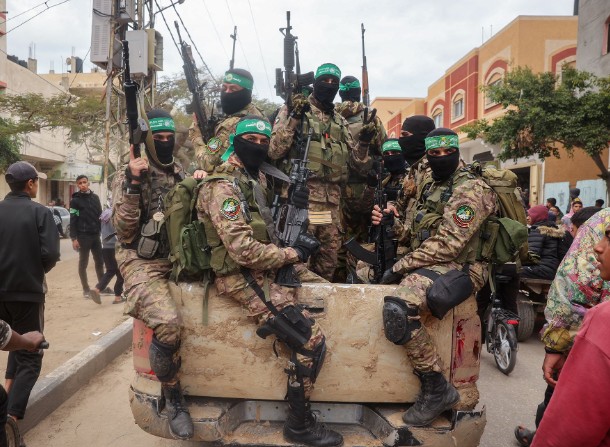U.S. Negotiates Directly with Hamas to Secure Hostage Release: A Controversial Move

In a controversial development, President Donald Trump confirmed that the United States is engaged in direct talks with Hamas, the militant group that has held numerous hostages, including U.S. citizens, in Gaza. The ongoing negotiations have raised questions about the U.S.’s approach to handling terrorist groups and its stance on future actions if the situation escalates.
While the Biden administration had distanced itself from such direct negotiations, Trump’s approach reopens the debate over whether engaging with groups like Hamas is a necessary evil to ensure the safety of American citizens or a dangerous precedent that could encourage more kidnappings and acts of terrorism.
During a press briefing, Trump confirmed the U.S. was working to secure the release of the hostages but was quick to distinguish between negotiation and providing any form of financial support to Hamas. “We are not paying them,” he assured, clarifying that the U.S. would not engage in any kind of financial transaction with the terrorist group. The President’s words, though reassuring to some, raised alarm among others who fear that even engaging in talks could embolden groups like Hamas, potentially leading to more hostage situations in the future.
The situation has become more urgent, with 24 hostages still believed to be alive under Hamas’s control. The hostages, including American citizens, are part of a larger group that has been held since the latest escalation of violence between Israel and Hamas. Trump’s comments came on the heels of a public outcry and growing pressure from families of the hostages and lawmakers, demanding a resolution.
The news of the direct negotiations has sparked immediate reactions from both domestic and international players. Israel, a key ally of the United States, has made it clear that it would prefer to handle the situation with Hamas independently. Israeli Prime Minister Benjamin Netanyahu’s office has refrained from commenting on the U.S. negotiations but has urged continued international support to combat Hamas and address its actions in Gaza.
The U.S. and Israel have historically coordinated closely on security matters, but the idea of the U.S. entering direct negotiations with Hamas could lead to tensions between the two nations. While Trump remains adamant that the U.S. is doing what is necessary to ensure the safety of its citizens, some Israeli officials may view this as a problematic signal, potentially undermining their ongoing efforts to isolate Hamas on the world stage.
The President’s comments also signaled a more assertive posture toward Hamas. When asked whether the U.S. would join Israel in taking military action if the remaining hostages were not released, Trump did not mince words. “Somebody’s going to have to get a lot rougher,” he said, hinting that the U.S. might take a stronger military stance if negotiations failed. The tough rhetoric reflects Trump’s broader approach to foreign policy during his tenure, marked by a willingness to use force in order to achieve national objectives.
The move to negotiate directly with Hamas has divided public opinion. Some applaud the President’s pragmatic approach, emphasizing that the safety of American citizens should always be the top priority. “We can’t just sit back and do nothing while our citizens are being held hostage. The U.S. needs to get involved and do whatever it takes to bring them home,” said one commentator.
However, others are more skeptical, concerned about the message that negotiating with a terrorist organization might send. “By negotiating with Hamas, the U.S. risks legitimizing them,” said one expert on international diplomacy. “It’s a dangerous game that could encourage more hostage-taking in the future.”
As the negotiations with Hamas continue, the world watches closely to see what steps the U.S. will take next. Will the hostages be freed, or will the situation escalate further? What role will Israel play in the coming days? These are questions that remain unanswered, but one thing is clear: the diplomatic, military, and political fallout of this situation will reverberate far beyond Gaza.
For now, President Trump’s administration is focused on the immediate goal of securing the release of American hostages. However, the long-term implications of engaging with terrorist organizations like Hamas will continue to spark debate in the coming weeks. As the situation develops, U.S. foreign policy is once again at a crossroads, and the world will be watching closely to see how this delicate issue unfolds.
